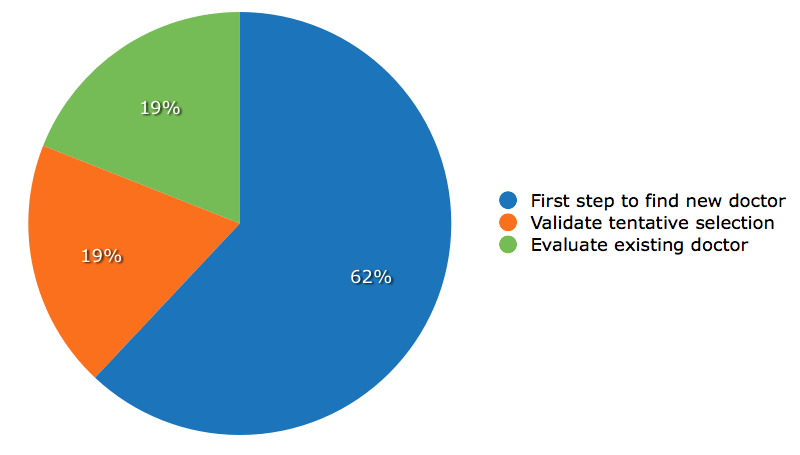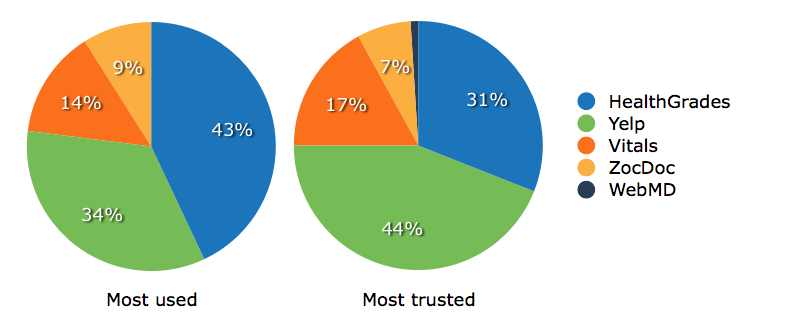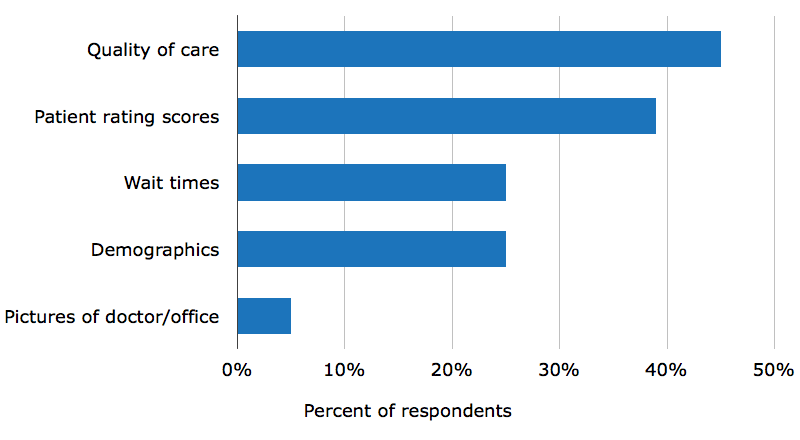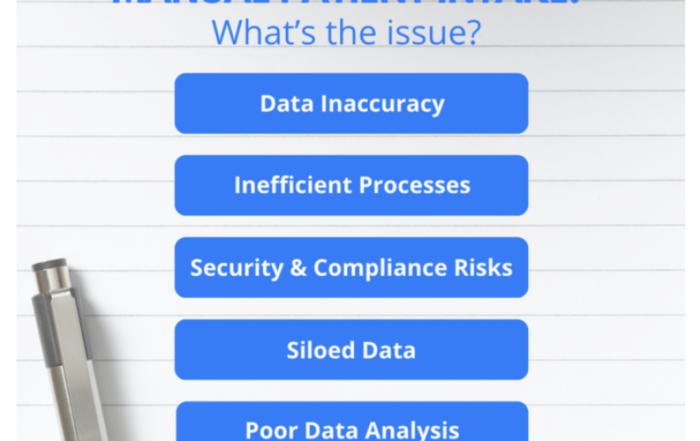Today’s healthcare economy is increasingly patient-centric; the ideal of the “empowered patient” is slowly becoming a reality. It’s no surprise, then, that patients are taking an active role in researching and selecting their doctors.

Consumers are searching for a restaurant to dine in, or a car to buy, or the best place to purchase a winter coat have long been turning to reviews from other consumers who have already solved those problems. Today, patients are turning to online reviews to research doctors.
I research medical software and follow healthcare industry trends for the Software Advice website. Interested in online review trends, I recently surveyed over 4,500 patients to learn when and why they use online review sites to research doctors, which sites they turn to, and what information they look for. Here’s what I learned about patient behavior and how you can use online reviews to the advantage of your practice.
Rule One: To Be Found, You Must Exist
The first rule for review sites is fairly obvious, but it’s overlooked often enough that it bears mentioning. In order for patients to find you on online review sites, you must be reviewed on those sites.
This is important because, according to our survey findings, most patients using online reviews are using them to find a new doctor.
How Patients Use Online Reviews

That means review sites represent an opportunity for you to attract new patients. But patients can’t be attracted to you if they don’t see you on the review sites.
Many review sites crawl through physician directories and create profiles for you based on publicly available information, such as your name and your practice’s address. So it’s possible you have an on online presence whether you know it or not.
Check the most popular review sites to make sure you’re listed, and if you are, that your information is correct. If a profile exists for you, you can often “claim” it to make changes to incorrect information, or you can contact the site to add or update your profile.
Focus Efforts on the Most Important Review Sites
Telling you to “check the most popular review sites” begs the question—which sites are those? Our research indicates that Healthgrades and Yelp are the most important.
Although Healthgrades weighed in as most popular (by virtue of the greatest percent of patients claiming to turn there first), patients ranked Yelp as most “trustworthy.” Vitals and ZocDoc are used less frequently, together accounting for nearly one-quarter of patient use.

When managing your online review presence, start with a focus on Healthgrades and Yelp. As the two most used, most trustworthy review sites, that’s where your efforts will have the greatest return.
Patients Want Information on Quality of Care
Our survey revealed that patients using online reviews are first and foremost looking for information about the quality of care a doctor provides. That information is even more important than a physician’s overall star rating (the 1– 5-star scale).
To me, this says two things. First, make sure you’re providing high-quality care to your patients. Most doct,ors consider that a priority already, but it never hurts to be reminded that patients do truly value quality care.
Second, ask patients to leave reviews for you online, and ask them to mention the care quality. Don’t try to manipulate them into fabricating details. Try being frank: you could tell them that data suggests this type of information is what other patients find most helpful, and that you’d appreciate their honest commentary. Again, to maximize utility, try focusing on Healthgrades and Yelp—ask your patients to review you specifically on one of those sites.
Just be careful not to pressure patients to leave positive reviews, even unintentionally. Make it clear that you’re after candid, constructive reviews, and that there aren’t consequences for negative reviews. Most sites have algorithms (or manual processes) designed to single out inauthentic reviews, and states have even begun prosecuting cases of fake positive reviews. Engineering reviews could hurt you much more than they might help you.
Address Negative Reviews with Caution
You may come across some negative reviews of yourself or your practice online. It’s okay to address those reviews, but be careful in doing so.
First, it’s important to understand that negative reviews are inevitable and are, therefore, a necessary part of your review profile. Patients realize that you can’t satisfy 100 percent of the patients 100 percent of the time, so those referencing online reviews expect to see some negativity in the mix. A completely positive review profile, especially if you have a high volume of reviews, may look suspicious or seem engineered. So don’t approach your online reviews thinking you must follow up with and change every negative review.
So how do you do it?
If you do want to follow up on negative reviews, there are some important considerations to keep in mind. Many review sites give you the option to publicly address negative reviews by posting a response on the review site. If you choose to do this, do not publicly discuss patient specifics. Even confirming that a patient of yours is, in fact, a patient of yours is a HIPAA violation. And of course, HIPAA prohibits you from discussing anything related to the patient’s specific condition(s) or treatment(s).
Another less obvious no-no is to avoid emailing patients without their consent. Some states require written consent from patients to communicate with them electronically, so if you want to email a patient about a negative review, they’ve left you, be sure you either have that consent or don’t practice in one of those states.
Additionally, it’s best to avoid responding to negative reviews “in the heat of the moment.” The last thing you want is to get drawn into a debate with a patient—especially a public one. Keep any responses professional and courteous, even if the patient isn’t, and don’t continue the conversation if the patient responds heatedly. Other patients will value a doctor who doesn’t “stop to the level” of name-calling or he-said-she-said battles.
So how should you address negative reviews?
Responses that highlight the positive changes you’ve made to address problems in your practice are great. For example, a good response to a patient complaining about wait times might say something like, “We’re just as frustrated as our patients when they have to wait a long time, and we’ve recently enacted XYZ changes to help shorten waits.”
It’s possible you may find a libelous negative review: one that uses untrue words or images to defame your practice. If you think you’ve encountered such a case, and you think the libel is serious enough to impact your practice, contact the review site. If you can prove the review is untrue, many sites will remove the libelous post.
Some Patients Go Out of Network Because of Reviews
Our survey found that 26 percent of insured patients are willing to visit a doctor outside their insurance network if that doctor has higher online reviews than an in-network doctor.
This demonstrates how seriously patients take reviews, which in turn underscores why you can’t afford to ignore them.
Patients are using online reviews to find information about you and, in many cases, decide whether they want to become your patient. This you can’t change. But by knowing when patients turn to online reviews, what information they’re looking for, and where they turn, you can help meet their needs and increase your practice’s visibility in the process.
To read the full report on the survey findings, visit: Softwareadvice.com
Images courtesy of The ParamountMD Journal












